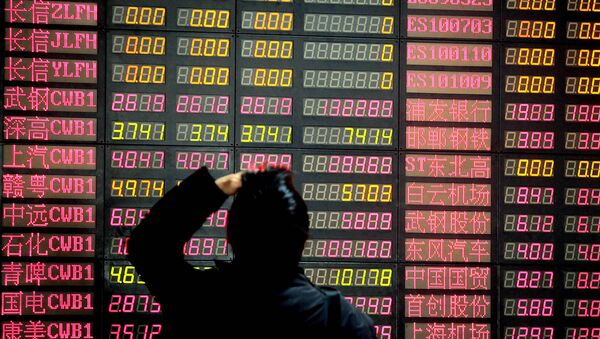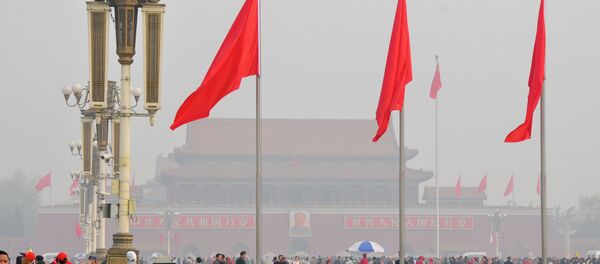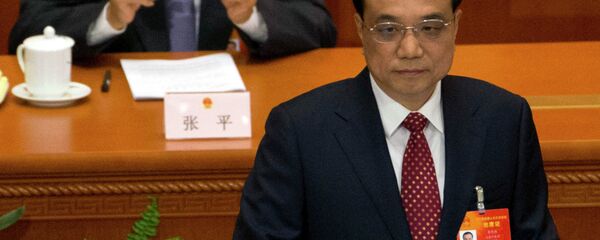Beijing confessed being unable to spur economic growth in the country as the huge shadow banking sector, enormous accumulated debt standing at $28 trln, and the overheated housing market effectively prevent the People’s Bank of China (PBOC) to implement a proper set of unconventional monetary policies similar to those effective (and helpful) in Japan and the Eurozone. Instead, China’s leader Li Keqiang pledged to fight corruption and environmental risks, measures, completely irrelevant to the scope of systemic problems the nation is facing. Besides, as China’s manufacturing is nearly contracting, some pollution issues are thus being solved by themselves.
Nonetheless, China’s leader admitted the necessity for a full-scale structural economic reform, without announcing any particular measures of economic policy to follow.
"Deep-seated problems in the country's economic development are becoming more obvious. The difficulties we are facing this year could be bigger than last year. The new year is a crucial year for deepening all-round reforms," Li said before 3,000 delegates of National People’s Congress in Beijing.
China’s stock markets reacted in a retreat to a one-week low, with manufacturing sector retreating the most. Ironically, during his speech Li had announced the industrial reform to take place in China sometime later this year.
The Shanghai Composite Index fell 1% to its lowest since 25 February. Among biggest losers are Air China and China Railway Construction, both slid 2%. Other sectors suffered losses as well. In financials, Bank of China lost 2.3%. In the energy sector, equities of PetroChina have been depreciating for the fourth consecutive day.
Meanwhile, pharmaceuticals and eco shares climbed (supported by Li’s environmentalist remarks), with Zhejiang Feida jumping 7.1% and Jiangsu Hengrui adding 2.1%.
Li said the new growth target for China’s economy for 2015 is 7%, meaning the actual expansion of economy may well fall short of the projection. Last year, China actually grew 7.4% against the target of 7.5%, the slowest pace in 24 years.
Threat of deflation is mounting in China as well, with a factory-gate inflation standing at only 0.8% in January, indicating weak demand for the made-in-China goods. The unconventional monetary ‘pro-inflation’ policies, similar to those of the Eurozone and Japan, cannot be implemented in China due to the aforementioned structural issues, and it looks like Beijing is out of options, agreeing with the declining growth.
The CSI 300 Index also lost 1%. In Hong Kong, the Hang Seng Index slid 0.6% in its third consecutive day of losses. To make the situation bitterer, the amount of shares that changed hands in Shanghai was 8.4% above its 30-day average, with more shares sold than bought.
Most Asian markets ended the day in the red as well, save for the Japanese and Korean shares. In Japan, Nikkei 225 rose 0.2%, while Korea’s Kospi Index added 0.1% on the wave of investors’ optimism of monetary stimulus undertaken by both nations’ central banks. The anticipation of the European Central bank (ECB) policy meeting to launch a full-scale bond-buying programme, and the expectations of the US jobs data, due Friday, rendered investors in healthier economies more bullish.
"Foreigners are continuing their buying spree on the back of increased global liquidity after quantitative easing by the ECB," Lee Kyung-min of the Seoul-based Daishin Securities said.
Wall Street has been retreating after the Dow and S&P hit their record highs, and Nasdaq climbed to its 15-year high on Monday in a readjustment of sorts. The ECB is to launch a monetary easing programme worth 1 trln euros on Thursday.
As a result, the euro has fallen to its lowest against the dollar since 2003, at $1.1061 now. The European markets are expected to rally as the ECB will detail its bond-buying plan after the policy meeting.
The dollar index advanced to its 11-year high, at 96.059 now. Investors are buying the greenback as Friday’s data are likely to show a significant rise in the US employment, prompting the Federal Reserve has enough grounds to hike interest rate soon, rendering dollar-denominated liquidity less available and more expensive.
Crude oil advanced in the US to $51.66/bbl as Iran had shaken the global oil market by making hawkish statements over its own nuclear activities.




